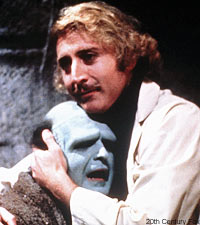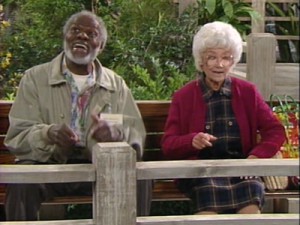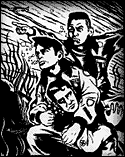(Excerpt from, The Cheeky Monkey – Writing Narrative Comedy (Currency Press)
“It’s hard enough to write a good drama; it’s much harder to write a good comedy; and it’s hardest of all to write a drama with comedy, which is what life is.” – Jack Lemmon
COMIC STORYTELLING
The demands of a classic comedy story in structural terms are much the same as those of drama.
There are three Acts, comprising a Set-up, Complications and a Resolution. Once the protagonist, their world and their goals have been established, the protagonist faces ever-increasing risk and conflict as they strive to achieve their goals. The obstacles inhibiting the quest grow in size, potency or number until, in a brief and climactic final act, the protagonist either overcomes the obstacles, reaches a stalemate or is defeated.
In most cases, the resolution stems from the nature and actions of the characters.
A comedy character’s tools, status and moral backbone are usually inferior to those of drama characters but, experimental stories aside, comedy and drama stories tend to follow the same ancient pattern.
The difference is that comedy stories, particularly sitcom stories, compress the twists and turns of the classic three-Act structure. Drama can present its stories in a natural flow, but a sitcom episode must distil its reversals and revelations to their essence.
It may surprise drama-writers to know that most quality sitcom episodes could be stretched into a satisfying ninety-minute dramatic film narrative. This transformation would require expanding the scope of the characters’ emotional journeys, adding depth and detail (i.e., backstories) to their path towards lasting change and giving greater attention to the more subtle traits of all the characters. Some of the qualities and tools of the characters might require an upgrade, but the basic story itself would probably stand up well.
In the sitcom episode, ‘Old Friends’ (The Golden Girls [see ‘Sitcom Poignancy’]), the old lady Sofia discovers her new beau, Alvin, has Alzheimer’s disease. Her journey goes from the Set-up (Sofia meets Alvin and likes him), to the Complications (Alvin’s memory and mood become erratic, the relationship is endangered) and then to the Resolution (Sofia decides that she can’t help Alvin, and lets him leave her life forever). Meanwhile, Rose, the most childish of the four older women in the show, finds that her teddy bear is being held hostage by a ruthless gangster girl. Only when Rose changes her outlook and defies the terrifying girl does she get her bear back.
Sofia’s story could be enriched and stretched to fill a broader narrative. Alzheimer’s disease, and the complications that go with it, are rich territory for any writer.
The themes of such a story might include the loss of loved ones, the slow erasure of one’s identity and the awful living-death that the tragic condition can impose. More time could be spent exploring Sofia’s character, her past and the elements of her life that are under threat if she chooses a lifelong relationship with Alvin. Her journey towards Alvin and her final surrender of him could underpin a heartbreaking epic.
Meanwhile, Rose’s story could undergo some simple changes (the teddy bear is changed to a human relative and the girl becomes an adult kidnapper) to provide the basis for a thrilling B-story. Its issue (helplessness in the face of a lost loved one) reflects Sofia’s story but gives it a different spin. There’s no doubt the two tales could be interwoven, their emotional scope broadened and the characters’ journey’s given greater texture. Sofia relinquishes her love while Rose fights for hers… Yep, if you like writing tear-jerkers, this kind of story may be your cup of tea.
The humour in Sofia’s journey in this episode stems from the playfulness of her relationship with Alvin; we see her sarcastic wit juxtaposed with her schoolgirl’s excitement at the romance. Having laughed with Sofia, the audience is vulnerable when the dark truth of Alvin’s illness hits home (see ‘Poignancy’). Rose’s story is made funny by the exaggeration of her relationship with her teddy bear to that of a great love, and by the little girl’s metaphorical identity as a gangster. The unspoken sorrow of Rose’s story is that, having lost her husband, she’s reduced to loving a teddy bear.
Given all this, it can be useful for comedy writers to begin the story-development process by exploring the full depth of their story in the way a drama-writer might. (There are many books on the topic of drama-writing with great insights to the art.)
Once the events, pressures and emotional journey of the characters are worked out in a three-Act structure, strip away the fat and flesh, leaving only the skeleton and the gizzards that drive it. Focus only upon the characters’ core personal qualities that are being challenged in the story, isolate the main conflicts from the peripheral ones and hone the theme to its essential elements.
With the bare essentials worked out, plot your story, moving it as quickly as it can go.
Where a film narrative might challenge every aspect of a character’s life, sitcom episodes usually need only one or two of a character’s qualities to be challenged. Tugging only one of the ‘puppet strings’ provided by a character’s qualities (main desire, unconscious need, weakness, strength, love, fear, outlook and public perception) can provide the basis for a sitcom story.
In Yes Minister, Sir Humprey’s main fear – the loss of control – is the basis for many of his actions and the cause of much of his pain. Remember, the believability of a sitcom is not based on how realistic it is; all that’s required is for the characters to act in accordance with their natures.
Make the changes in the direction of your comedy story come swiftly. A regular narrative gag is the ‘reversal’, in which characters suddenly change direction due to pressure or a realisation (i.e., a man defiantly says he’s not afraid of muggers, but when a gun is stuck in his face he immediately hands over his wallet). Swift reversals happen repeatedly throughout a typical sitcom episode. They lay bare the weakness, hypocrisy or self-serving nature of the character/s.
A longer drama narrative might include reversals at varying paces, but in comedy they must be set up and paid off almost instantly to get a laugh. With less than twenty-one minutes to tell a three-Act commercial sitcom story, there’s no time or need for textured emotions and nuanced motivations at every step. Just tell the damn story. Sitcom demands we deliver each step of a story clearly and simply, and then rush to the next one.



